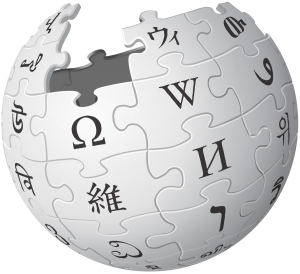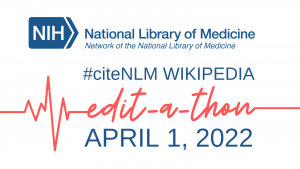Mar
28

Posted by benniefinch on March 28th, 2022
Posted in: Blog
Tags: citizen science resources, Wikipedia
Each year, NNLM hosts 2 Wikipedia Edit-a-thons to improve health topic pages on Wikipedia. We identify a topic and articles in need of improvement. Then we join experi enced and new Wikipedia editors to work together to add citations to quality health information resources.
enced and new Wikipedia editors to work together to add citations to quality health information resources.

For this Spring 2022 #CiteNLM campaign, we are focusing on ENVIRONMENTAL HEALTH.
Our environment affects our health. If parts of the environment, like the air, water, or soil become polluted, it can lead to health problems. For example, asthma pollutants and chemicals in the air or in the home can trigger asthma attacks.
Some environmental risks are a part of the natural world, like radon in the soil. Others are the result of human activities, like lead poisoning from paint, or exposure to asbestos or mercury from mining or industrial use.
Learn more about Environmental Health. Most of the following are available in English and Spanish:
Environmental Health: MedlinePlus
National Institute of Environmental Health Sciences (NIEHS) (nih.gov)
Resources for children are also available from NIEHS. Visit Kids Homepage – Kids Environment Kids Health – National Institute of Environmental Health Sciences (nih.gov) to find educational materials, games, and activities.
Environmental Wellness Toolkit | National Institutes of Health (NIH)
Looking for other ways to do community science in your library or community, or celebrate Citizen Science Month? This 2 hour, on-demand, online class from NNLM and SciStarter.org introduces citizen science for librarians, staff, and community-based organization leaders and includes clear, specific instructions and case studies on how a small, midsize, or large library or organization can bring citizen science activities and programs to their community. This tutorial is available in English and Spanish. Go to scistarter.org to register for the class or to check out some really cool featured projects.